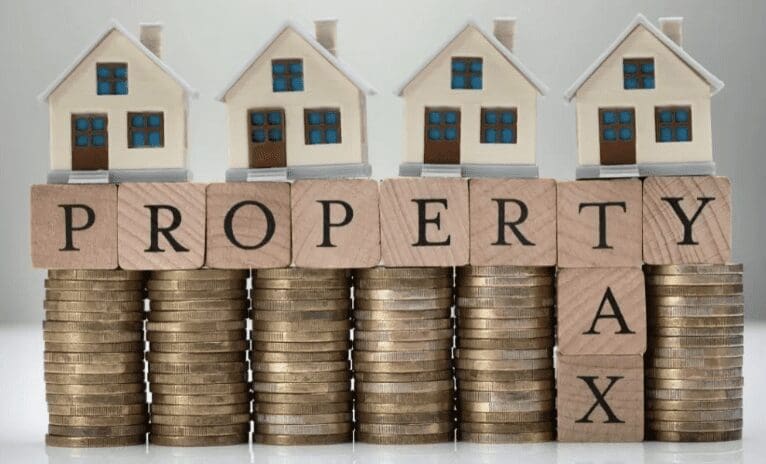

Kent County is the first to have its property reassessments completed. (Photo from The Law Firm of Bingaman Hess)
Kim Patterson Luton of Dover got a Christmas present nobody would want: A letter detailing the new reassessment of her family’s property.
The letter, which arrived in mid-December, concerned property built in 2005 and long assessed at $59,300.
Under the new evaluation, her home is assessed at an eye-popping $419,300.
“My husband and I are seniors and living on fixed retirement incomes, so of course we are concerned about any increase in property taxes,” she said.
The Lutons were among the first Delawareans to see the results of a statewide property reassessment.
Property reassessments have not been done in New Castle County since 1983, in Kent County since 1987, and in Sussex County since 1974.
That’s meant people are still paying taxes on decades-old old valuations, rather than current ones, affecting a variety of government services, including schools.
Kent County was expected to have its reassessments done by the end of 2024, but completed them early.
Paul Hertz, commissioner of the Kent County Levy Court, District 6, said all letters of new reassessment values have been sent out, about 3,000 in total.
New Castle and Sussex counties should have their assessments done by the end of 2025.
“New Castle and Sussex were delayed a year, and their reassessment is happening,” he said. “That’s because they have so much more property, so their assessment will not go into effect this year, while our new assessments will be affected for fiscal year 2025.”
What Delaware’s residents really want to know is what the assessments mean to their bank accounts.
Hertz said county taxes will not be raised overall and Kent County expects to bring in $14.5 million in revenue next fiscal year, the same as this year.
Taxpayers may see changes, though, he said.
About one-third will pay more, one-third will pay less and one-third will pay the same, he said.
Kent County tax now is 36 cents per $100 of assessed home value.
For next fiscal year, which starts July 1, he expects the county tax to drop to between 5 and 7 cents per $100 per assessed home value to guarantee that same $14.5 million in revenue.
A former Levy Court commissioner applauded that move.
“I think the county would be wise to hold true to a revenue neutral assessment next year with the goal to be that taxation is fair and accurately assessed,” said Sen. Eric Buckson, R-Dover.
Hertz said the county isn’t pushing to raise tax revenue for two reasons.
“The state made a law that you cannot increase your taxes the first year of a reassessment,” he said. “Also, we just raised our taxes last year, we went from 30 cents to 36 cents per $100 of assessed value, so we actually had a 20% increase already for fiscal year 2024.”
He said that was the first tax hike in about 15 years, and the county historically has raised taxes every 12 to 15 years or so.
Back-to-back years of raising tax rates would be unordinary.
Property value
The average property value before the reassessments in Kent County was $62,000. After reassessment, Hertz said it is 600% higher, or about $420,000.
Realtor.com says that in November 2023, the median listing home price in Kent County, Delaware, was $389.000, trending up 11.4% year-over-year. The median listing price per square foot was $195 and the median home sold price at $339,500.
The average resident will pay $223 per year in county taxes for 2024, just as they have before.
Residents will get their tax statements in July, Hertz said.
The previous way of calculating tax assessment was based on 60% of the property value but the new law requires 100%.
That change doesn’t seem wise, said Kim Patterson Luton.
“What happens if the real estate market drops and then you have all the citizens overpaying on highly inflated property values?” she said. “ The other thing that is troubling is people won’t know the tax impact until July 2024 when the new tax bills come out.”
For people who have escrow accounts, she said, it may cause their mortgage payments to spike drastically with little time to adjust their budgets, especially for low-to-middle-class citizens who live paycheck-to-paycheck.
Buckson said he thought his reassessment was fair and suspects that’s because he lives in a semi-new construction with a standard size home and lot.
“The challenge is reassessing a home that is older or on a unique size lot with structures,” he said.
Buckson believes the county has done a good job of getting information out so that residents better understand what reassessment is all about and why it is needed.
“The biggest thing is we thought the people that would appeal would be more than a 15% range, but it actually came in around under 3%,” Hertz said.
So far.
The formal appeal process starts in February. Residents have to bring documentation or some sort of evidence to a panel from Tyler Technologies, the software company contracted by the state to conduct the reassessments.
Evidence could include appraisals, value assessments from notable real estate companies such as Zillow or Realtor.com proof that comparable properties in the area have a different reassessment value.
Hertz talked to a public forum this week and was pleased everyone seemed content with their new property value.
Many people actually indicated their assessment wasn’t high enough, he said, and believed they could sell their house for more than what the new value is.
Hertz pointed out that school and city taxes are calculated differently than county taxes.
A school district, for example, will set its own tax rate.
If a district now has a local revenue stream of $10 million, tax rates may be lowered in order to match the $10 million revenue, he said.
If the district wants more than the $10 million local revenue, it will have to increase its tax rate.
That would require the public’s approval through a referendum in which residents would vote for or against a proposed tax hike.
Patterson Luton said she and her family do not plan on appealing the valuation of their property.
“I would fear some other factor would cause property tax to rise even more,” she said, “and as you can see by the current assessment and the new assessment, ours has increased considerably.”


Raised in Doylestown, Pennsylvania, Jarek earned a B.A. in journalism and a B.A. in political science from Temple University in 2021. After running CNN’s Michael Smerconish’s YouTube channel, Jarek became a reporter for the Bucks County Herald before joining Delaware LIVE News.
Jarek can be reached by email at [email protected] or by phone at (215) 450-9982. Follow him on Twitter @jarekrutz
Share this Post




